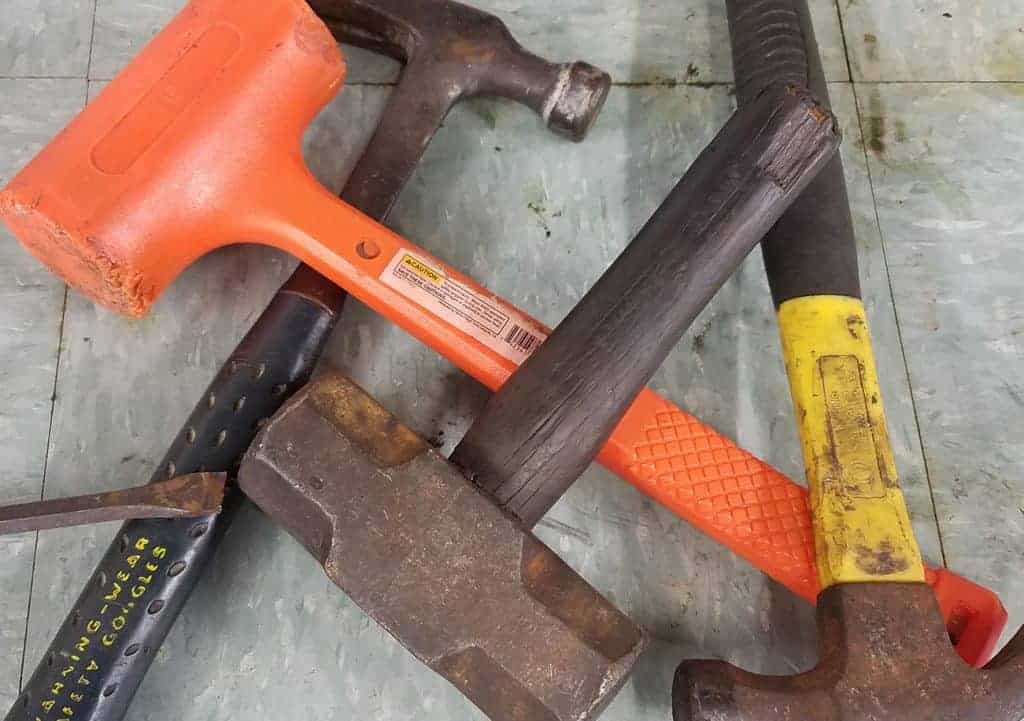In almost any industry that is working on combustion engines; whether it be marine, automotive, aviation, or heavy equipment, one of the most touchy subjects is the question:
What Is The Real Difference Between A Mechanic & A Technician? The difference between these two terms is a semantics perception coming from the general public. There is an evolutionary progression between the two, in the minds of the general clients using their services.
Here are the biggest differences and meanings to why people use these two terms to mean different things. Representing different people.
The Clients Perspective
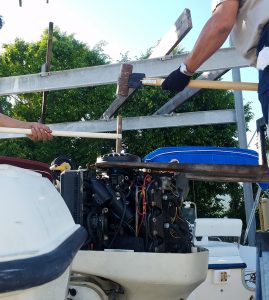 Coming from someone who makes a living turning wrench’s and getting people back on the water (with the peace of mind that their problem has been fixed), in my opinion and experience in talking daily with clients and owner’s, their view is what really matters!
Coming from someone who makes a living turning wrench’s and getting people back on the water (with the peace of mind that their problem has been fixed), in my opinion and experience in talking daily with clients and owner’s, their view is what really matters!
Ultimately, the person the has the engine with a problem does not care what we call ourselves. Nor do they care about what we do. What they care about is me. Me, me, me, me, me, me, me, what about ME, and what about MY problem!
Everybody has this trait, whether we like to admit or not. Generally we only care about ourselves. Yes, it is super sad, but if we are going to be real. It is the truth! The person that has the engine which isn’t performing properly, only cares about getting it fixed. Plus, what it is going to take out of their pocket, in order to make that happen.
With this in mind, my experience is that their perspective has come to know two terms. Mechanic, and Technician.
Working in a dealership, I can tell you that the people that are paying the premium price and bringing their boats to the dealership, have the view point that they are bringing the engine to a “technician”. The technician is professionally trained to fix the problem the correct way. Also, in the quickest amount of time possible. That is why they are paying the premium.
Working on friend’s, neighbor’s, and everyone else that finds out you can fix stuff, they believe they are taking their engine to a “mechanic”, because it is cheaper. The one paying the premium believes that the “mechanic” is just going to “figure it out” at their expense, titling them more of a parts changer.
The one bringing their stuff to the “mechanic” believes that they will be able to get it running, without having to put any money in it or change any parts at all! They can get this thing running with some PB Blaster and Chewing Gum!
Both are wrong! You can’t really have one without the other, but we will tackle that in a little bit. Let’s talks about:
The Technician’s Perspective
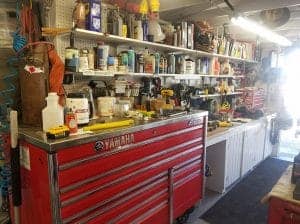 The school educated, properly trained, book running, wrench turner. Well, that’s how some see it. Most of the time technician is used as an ego booster to make people comfortable, and others to feel important.
The school educated, properly trained, book running, wrench turner. Well, that’s how some see it. Most of the time technician is used as an ego booster to make people comfortable, and others to feel important.
This is the perspective of someone that is offended if they are called a mechanic. They believe that they are above a mechanic. Usually because they specialize in a certain area of expertise, or they have extreme title’s and certification’s to prove that they can fix something.
They have this idea that all mechanics are shade tree mechanics. You know, backyard, redneck, liquid wrench squirting, dirty, grease ball mechanics! Where this view has come from, who knows! Probably from all of the really bad wannabe’s getting their hands on people’s expensive belongings, and destroying them!
However, the idea to say that a technician is not a mechanic. Doesn’t really make much sense to me.
Looking at this from the view point of what a combustion engine is, in today’s world of completely electronically controlled engines; underneath all of it, there is still a mechanical crank, pistons, block, and heads.
Suck, bang, boom. The piston’s still go around to produce the horse power. Regardless of the digital layout and endless sensors, (that are super valuable and make the job so much easier), you still have a mechanical engine, period.
The Mechanic’s Perspective
On the other side of the field we have the mechanics. Those that feel that they are being pushed down and looked at like they don’t know what they are doing.
Which is pretty crazy, because you still have to have the understanding of how the engine operates in order to run properly and effectively.
But a person that views them self to be a “mechanic” and not a technician, sees it as they can fix anything! Regardless of what it is. If it has a motor, they will figure it out and fix it.
Which is great! Ultimately they fall under the “technician” category because they can figure the technical aspect of the engine out and get it running! Because of the politically correct rivalry between the two though, they prefer to be called a mechanic.
The never ending battle between the two perspectives, seems like just a civil war between two wrench turners!
The Professional’s Perspective
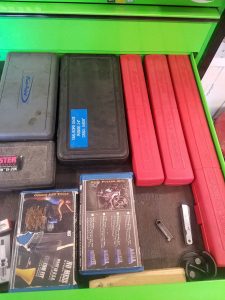 The real professional’s perspective is a more clear visual understanding. These are the ones that get it.
The real professional’s perspective is a more clear visual understanding. These are the ones that get it.
They don’t get caught up in the battle. The East Side Vs. The West Side. The other side of the tracks. The shirts and the skins. They don’t care what you call it.
The professional is the learner. They better way ones. They look at the engine and are extremely teachable; understanding the systems and process’s, in order to get the problem resolved and get the person back to enjoying whatever the engine is inside of or bolted onto.
The professional looks at it from the financial view point. They understand that the client only cares about their money and getting their stuff back ASAP. Which means, the faster the better! If they can shave off some time by diagnosing the problem using this specific system, then that’s what they do.
Not willing to cut corner’s though, when it comes to double checking and guaranteeing the resolution of the problem; they do the work off their name.
If their name is going to be attached to the repair, then they will do whatever it takes to make sure that the engine isn’t coming back to their shop with the same problem! When it leaves, it’s fixed. Period, no excuses.
These are the real deals, they know how to use the proper equipment to get it fixed and out the door! Regardless of the shop that they are working in, whether it be a dealership or Bob’s Repair Center; they care about their reputation, not the title.
The Evolution of Someone’s Career
This battle of Mechanic Vs. Technician is ultimately semantics. The view of what the word means to other people and not what it really means. A mechanic is a technician, and a technician is a mechanic. You can’t have one without the other.
In anyone’s career, they are always striving to be better. They want to move up the ranks and get to the professional level. When you are sweeping the floors you can’t charge the premium price for your work or your time.
When you reach the top you can charge what you want based on your name and what you know how to do.
To put it more into an evolution of a career, you start from the bottom and work the way up. You have to start as a “mechanic” and get to understand the basic mechanics of an engine. You can’t grow if you don’t understand how a combustion engine operates and functions.
Getting to the point where you understand all of the mechanical systems, and what makes them do what they do. Learning and understanding the failures. What caused the failures and what the signs are that you can see before it happens.
Then you have to enter into the “technical” stage of your career. Using that term to say the technical aspects of the engine. This isn’t 1950 anymore, learning what the parameters are and what the values mean is super important if you want to be a professional. In order to get paid for being the one that everybody has no doubt that when you get to it, it will be fixed, and fixed right!
You can’t expect to ask someone for top dollar to fix their stuff, if you can’t understand how it works. Not just the mechanical aspect, the technical aspect too! What the difference between the barometric pressure and atmospheric pressure is, why that is important. Boost pressures, throttle control valves, reference voltages, and feedback voltages.
How the network operates to allow all of the computer’s to talk to each other, and how to get in there and figure out what has failed when something stops working.
Once you understand this, you are the professional, there is a little more than just being a good tech though.
The Wannabe’s
Being a professional is a different level of accountability, responsibility and dependability. No one cares if you are the best tech in town. But if you don’t show up when you say you will, no one will take you seriously.
If you over exaggerate all of the things you know how to do; lying and short cutting, stealing, overcharging, and down right screwing people, that will never get you anywhere. You will never be in business for long an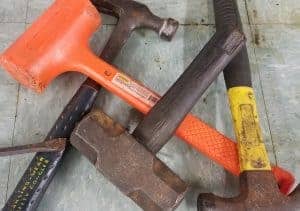 d will always be jumping around from here to there.
d will always be jumping around from here to there.
Being unreliable is a problem, no matter what industry someone is in. If they are the best specialist and can fix anything, doesn’t mean anything if you can’t be trusted. That is what really separates the professional’s from the wannabe’s.
A wannabe will talk, talk, talk, and talk some more about all the things they can do. All that talking is to cover up the fact that they can’t fix anything at all! They are hiding behind a title in order to get business or keep a job. For that is all they are looking for in the first place. A job.
Professional’s treat it as what it should be, a career. They want to be the best, know all the new stuff, keep up with the ever changing industry. Such as, the new tools, models, changes, and what is going on with the products they are working on.
A professional wants to get trained, go to school, use the new stuff, and be able to work on all of it. The old and the new.
It is the dividing line that isn’t in a term, technician or mechanic. It is the character of the person that is doing the work. If they are only out to make a quick buck, that is exactly what they are going to do. That is also exactly the type of work that they are going to provide too.
The wannabe is used to rigging up stuff to get the engine to run for a little bit. Not fixing the problem, and letting the client take back their stuff, just to find out in a couple weeks that it wasn’t really fixed. It just got a little cleaning and a big bandage. In short, the wannabe is a rip off mechanic/technician.
The Industry Standard’s
 When it comes to being a professional and keeping up with the industry standards, being a great technician or mechanic isn’t about the job title. It is for the purpose of diagnostics and resolutions in the most efficient way possible.
When it comes to being a professional and keeping up with the industry standards, being a great technician or mechanic isn’t about the job title. It is for the purpose of diagnostics and resolutions in the most efficient way possible.
It is about knowing how to use the systems. Knowing the process’s and where to find the information. This is probably another line that people use to divide a technician or a mechanic.
Knowing how to use the proper tools. Using service manuals over just figuring it out. Knowing how to operate the service manual and the diagnostic software. Anyone can plug a computer into an engine and read the codes. However, it is a step beyond that to understanding the information.
In order to analyze and know where to go to next. In order to know what the values are saying about what is going on with the engine. and be able to use the service manual to go through the proper procedures to rule out and diagnose the components in order to give a 100% diagnosis, takes a professional.
That is what people are paying for. They want to pay for the person that is going to give them a guarantee that this component has failed and this is how to fix it. Being able to do that in an hour, opposed to the guy that runs to google, forums, and YouTube!
Not saying anything is wrong with these platforms, there’s tons of great information out there and professionals that are providing that information! However, there are also a ton of misleading information to go along with it.
Being able to know how to use manufacturers tech support, the service manuals, the diagnostic tools, and then having the right tools to get in and do the job. This is the dividing line. Not the title!
My Opinion & What The Future Holds
In my own personal opinion. I use the terms interchangeably. To me, it doesn’t matter what a person calls themselves. I want to see the skills. Show me!
Prove it! If someone says they have all these certifications and can do all these things, then let’s get it done! If someone says they don’t have any certifications, but has all this hands on self taught troubleshooting talent. Let’s get it done!
Anyone can climb aboard the Snap On truck and get all the expensive equipment they want. Flaunt all the fancy tools they want. But, if they don’t know how to use them properly, they are a wannabe. Just another liar, someone that doesn’t have any skills and is too lazy to put in the work.
They have no interest in being teachable, they don’t care what the old timers say, or have any interest in learning the proper systems and procedures to get the job done the correct way.
Their future usually ends from odd job to odd job. It never takes off. Then the blame game comes out and it is always someone else’s fault. They never got a chance. They didn’t need this or that. Never owning up to it, but blaming others for it.
These are neither technicians nor mechanics. Because to all the professional’s, entrepreneurs, and get-it-doner’s out there; they are just a joke looking to screw over future clients!
Let Us Know, What is Your Opinion?
Tell us in the comments what you think about the issue? Is it not an issue? Is one better than the other? Are they completely two different things? Let us know! We want to hear from you! Then feel free to Check Us Out!
We create all kinds of videos to help you out in servicing and repairing your outboard engines. We specialize in the Marine Industry on Outboard Engines and are here for you to give you helpful hints, tips, and outboards service tricks. If you have any questions, you can ask us in the comment section as well. Thanks for stopping by!

